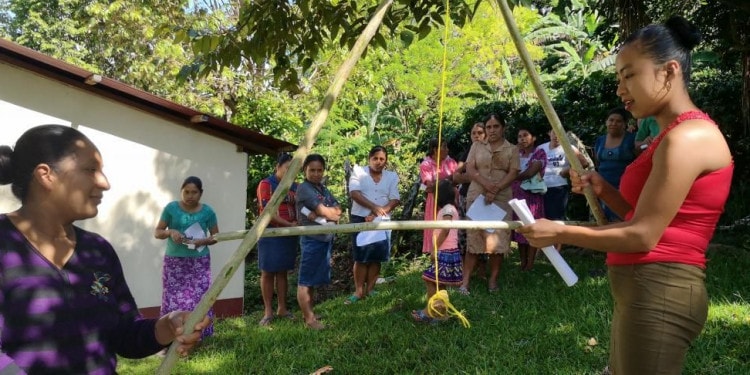Agriculture makes up 25% of global female employment and even more in low and middle income countries. In Central America, empowering this workforce is furthering sustainability within agriculture and aiding climate change adaptation.
As women make up the majority of the rural population, they are the most affected by extreme weather events. At the same time, this presents an opportunity, as being at the frontline of climate action also makes them a vital part of climate change adaptation and mitigation initiatives.
The CGIAR Research Program on Climate Change, Agriculture and Food Security (CCAFS), together with key actors in Central America, has created two guides to strengthen the capacities of the region’s institutions to integrate a gender approach in their activities related to agriculture and climate change. After a process of integration and dissemination, these guides have become an integral part of the formulation and implementation of policies and interventions on climate-smart agriculture (CSA) in Central America.
GUATEMALA, THE FIRST COUNTRY TO JOIN
Together with the Gender and Climate Change units of the Ministry of Agriculture and Livestock of Guatemala (MAGA), the guide “Step-by-step process to mainstream gender in climate-smart agricultural initiatives in Guatemala” was developed. The document was framed by MAGA as a key document that responds to the implementation of the Climate-Smart Agriculture Strategy (EASAC) for the Central American Integration System (SICA). In addition, as part of the dissemination process, MAGA produced a shorter and synthesized version of the guide aimed at agricultural extension agents. Beyond its initial objective of strengthening Guatemalan institutions, the guide has been used outside the country, particularly in Honduras, and at a regional level.
The guide is composed of three modules that correspond to different phases of intervention. The first module discusses ways to integrate gender in the process of designing and formulating a CSA intervention. The second module focuses on gender mainstreaming in the implementation phase of an intervention. The third module explores the process of designing a gender-sensitive monitoring and evaluation system. The guide was translated to English so that the learning experiences can be informative and adaptable to other contexts beyond Latin America.
Related Articles: Gender, Agriculture and Crisis | Equality in a post-pandemic era | Gender, climate change and agriculture
HONDURAS BUILDS ITS GENDER GUIDE
Honduran institutions decided to share the experience and contents of the guide with national stakeholders and promote gender mainstreaming in the Honduran agricultural sector. As a result, the gender unit of the Secretariat of Agriculture and Livestock (SAG), with the support of CCAFS, the Alliance of Bioversity International and the International Center for Tropical Agriculture (CIAT), and the Resilient Central America (ResCA-TNC) project, developed a new guide adapted to the Honduran context.
The guide aims to help key actors introduce a gender component in sustainable agriculture initiatives and is being used in the process of updating the gender policy for the Honduran agricultural sector. In addition, ResCA is using it to diagnose the level of gender inclusion in the formulation of the Climate Resilience Plan for the Honduran national bean chain.
OUTCOMES IN CENTRAL AMERICA
Dissemination activities in Central America have aroused the interest of the region’s ministries of agriculture in strengthening the inclusion of gender in agricultural development and climate change activities. Guatemala shared the construction of the guide with key stakeholders in the SICA region and the Central American Agricultural Council (CAC). The positive feedback allowed for two important results:
- The organization of a series of virtual events on gender and CSA, where the guide was presented to more than 150 people from the ministries of agriculture, gender units, agricultural extension teams, meteorological services, CAC gender network, Council of Women Ministers of Central America (COMMCA), international cooperation organizations and universities in the region.
- The preparation of a roadmap to the implementation of the EASAC gender, intergenerational and social inclusion strategies, in order to identify key actions at different levels (regional, national and territorial).
With this instrument, it is expected that SICA region countries increasingly move towards the incorporation of transformative CSA actions from a gender perspective.
Editor’s Note: The opinions expressed here by Impakter.com contributors are their own, not those of Impakter.com. In the Featured Photo: Rural women play a vital role in the implementation of climate change adaptation and mitigation initiatives. Featured Photo Credit: C. Lopez (CCAFS).














